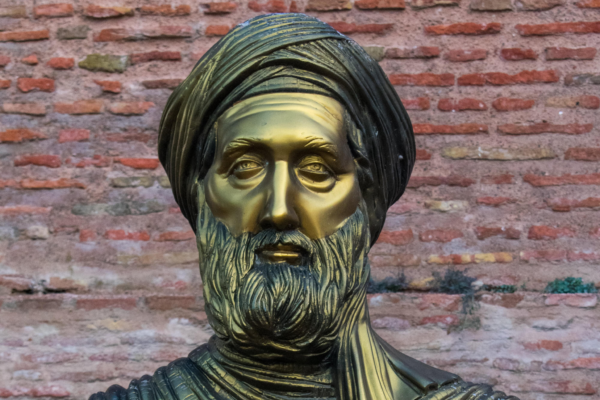I have little doubt that your blood, like mine, is boiling at the terrible news we received this morning. The execution of Sheikh Nimr Baqir al-Nimr, a bastion of freedom in the face of oppression in the Kingdom of Saudi Arabia, renders me angry and terribly sad.
For those still getting up-to-speed with the story, this announcement comes amidst a long-waged campaign against Nimr’s imprisonment. Following years protesting against the marginalisation of minorities in Saudi Arabia, Sheikh Nimr was arrested several times in the last decade, shot and allegedly beaten in captivity. He is one of 47 the regime put to death across Saudi Arabia yesterday. His death is a trademark act of Saudi repression and cruelty.
In times like this we are faced with two paths. The first is familiar to us all. We get angry, we tweet, Whatsapp, change our display pictures – but, truthfully, not a great deal comes of it. No matter how much we chant his name now, Sheikh Nimr’s appellation will slowly be forgotten; his story will become a distant and hazy memory.
There is a second path, though. We can seize the opportunity to take meaningful and lasting action to ensure that never again is a civil rights activist, religious leader of virtue and principles, placed in such a situation. We can mobilise our resources, pull the levers of influence and effect change.
Our focus must alter. The movement must morph from ‘Free Nimr’ to something which resonates even louder and clearer. It must become universal – and not merely the call-to-arms for Muslims or human rights activists.
Weapons must stop being sold by our government to Saudi Arabia, particularly in view of the debilitating incursion in Yemen. For it is inexcusable our arms fuel this accursed fire. Other detainees, like young Ali al-Nimr, must be afforded free and fair treatment immediately, whilst blogger Raif Badawi has a decade of lashes and imprisonment ahead of him.
The situation is serious, friends – we have no time to sit on our hands.
The energy you are feeling now, the heat of a nova inside you – use that to turbocharge tangible changes to our foreign policy.
There are several things we can do:
1. You have a voice – use it
Social media can be very, very powerful. Oftentimes it acts as an echo chamber for like-minded people to exorcise pent-up energy. However, if used correctly, it can prove a useful platform to engage in candid discussion, share information and, sometimes, change hearts and minds.
Just remember – be rational and dispassionate. Shouting and swearing doesn’t do it. A good litmus test may be: does your tweet require more than one exclamation mark? If so, probably won’t be deeply persuasive. The same goes for expletives and rhetorical questions.
Share information gathered by reputable organisations, such as this statement on Sheikh Nimr by Amnesty International, to give your perspective authority and credibility.
Be informative. Explain who Sheikh Nimr was, what he stood for and why he was executed in cold blood. Imagine yourself in the shoes of someone who knows nowt of this man with a strange name – on a Saturday afternoon, why should I care? You have 140 characters to make someone else care for him half as much as you do.
So get tweeting. Write blogs. Comment on others’ pieces and help shape the debate.
2. Your MP needs to know what has happened – talk to them
Members of Parliament wield extraordinary power. They can seek political and diplomatic action, write to the Foreign and Commonwealth Office (FCO) and act as our mouthpieces. I’m not naïve enough to think that all politicians will take any sort of meaningful action on Middle East affairs, but we must try. Sometimes you’ll be surprised at who will agree with us (Louise Mensch, for example, has been very outspoken today – and good on her).
Many fair-minded politicos are sympathetic to the argument that the Saudi regime is barbaric, misogynistic, classist and deeply patriarchal. The support Jeremy Corbyn received over his efforts for Ali al-Nimr, who faces a sentence of death in spite of a seemingly forced-confession and his tender age, is proof enough of this.
We must harness such influence. And it’s easy – after all, we live in an age of digital democracy. Email your MP, tweet them, visit them during surgery hours. (Details on how to get in touch here.) Urge them to lobby the Prime Minister and FCO to condemn Saudi Arabia’s actions and implore the revocation of their bizarre and frankly risible UN Human Rights Council seat.
3. Use whatever skills you have
You don’t have to be able to write like Matthew Parris, Glenn Greenwald or Robert Fisk to shape public opinion. Call upon whatever God-given gift or position you are fortunate enough to have.
- Handy with graphics? Design an infographic with statistics of the number of Saudi executions this decade, quotes from a leading NGO and other useful information. Share this online.
- Got a YouTube page? Post a vlog about Nimr’s tragic execution and the human rights abuse which transpire on a daily basis in Saudi Arabia.
- Student at college or university? Organise a seminar or put together a short petition, raise awareness of the plight of minorities in Saudi Arabia and around the world.
- At work? Put together a small fund with colleagues at work to donate towards an NGO battling tyranny in the Middle East.
Imagine if this New Year’s weekend, you were able to help inform the world – not about the Rose Bowl, not about 2016 celebrations or sporting events – but the plight of civil rights activists halfway around the world. What an honour that would be.
4. Make 2 January ‘Nimr Day’
Tyranny is never eliminated overnight. It takes a large number of small ripples to create a tidal wave. Nimr’s martyrdom must be a call to action this year and every year.
I pledge that between 2 January 2016 and 2 January 2017 I will do my bit, in honour of Sheikh Nimr, to fight oppression wherever I see it. And I hope you will join me. Together we can ensure his name is never erased from our memory, but rather forever etched on the tablet of human rights activists we honour and in whose name we fight.





